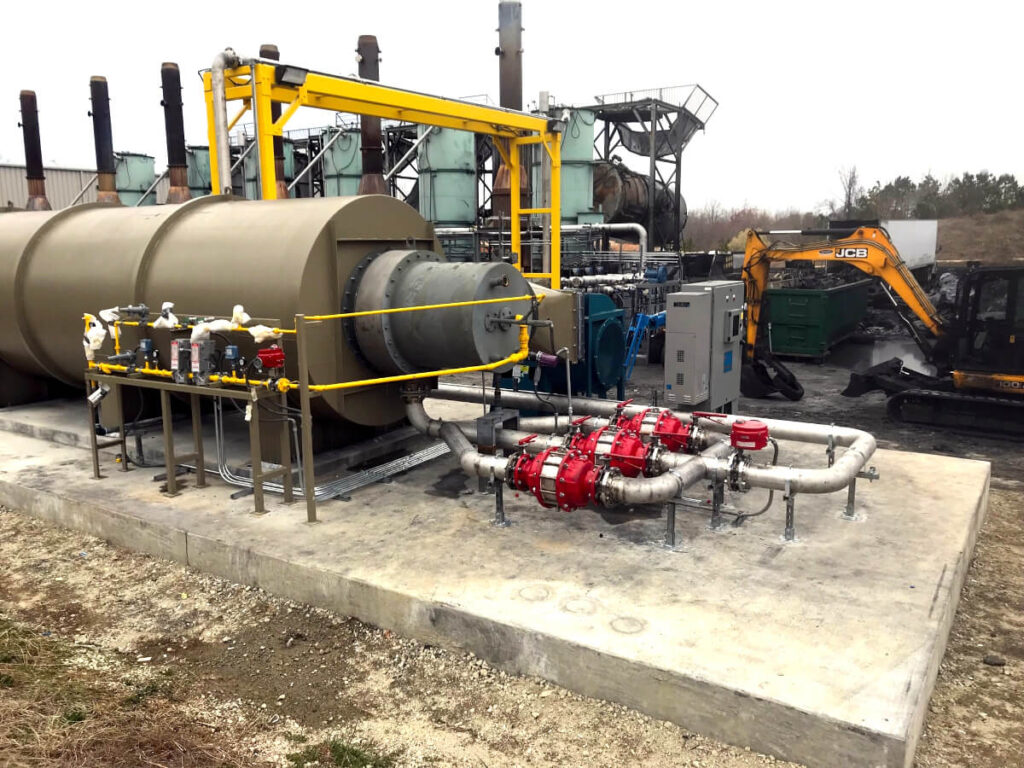Recovery & Recycling
Repurposing Materials for a Circular Economy
Recovery and recycling operations are critical aspects of the circular economy. Many great companies are recovering and reusing valuable raw materials from used motor oil, rubber tires, automobile batteries, landfill gas, and other products that are traditionally discarded or untapped. Recently, there has been a lot of innovation to recover many different raw and finished materials economically in order to reduce the environmental impacts of waste.
The Role of Air Pollution Control in Recovery and Recycling Operations
Federal and state laws dictate limitations on air pollutants from manufacturing operations, and there are negative repercussions for non-compliance. In addition to fines and penalties, severe violations may lead to plant closures or negative press coverage. Populations exposed to these pollutants may experience adverse health effects, which could also lead to litigation.
Most of the recovery and recycling processes are new and unique, which creates challenges in determining the appropriate treatment of the air pollutants that are not economical to recover. Additionally, the flow rate and pollutant load may be highly variable.
Outside of normal plant operation, some instances may require air pollution control devices for emergency situations, plant upsets, or turnarounds. Pollution Systems has experience with a wide range of solutions and will assist in understanding and selecting the appropriate equipment.
What Technologies are Effective for Recovery and Recycling Operations?
Each operation will have unique goals and challenges. Some of the more common technologies deployed for different recovery processes are listed below:
- Enclosed Flare – appropriate to treat exhaust streams with higher VOC content and is robust to handle varying flows and pollutants.
- Direct-Fired Thermal Oxidizer – few moving parts and very reliable in VOC abatement. Also capable of handling organic solids or liquids in the process stream.
- Recuperative Thermal Oxidizer – includes a heat exchanger to reduce gas consumption and may sometimes be upstream of a waste heat boiler.
- Chemical Gas Scrubber – uses packed bed media to treat specific airborne HAPs.
Discuss Your Process Challenges with Us
We will work jointly with you to understand your goals and challenges so we can provide the most appropriate abatement system for your process.

Related Case Studies
Horizontal Enclosed Flare Abates Hydrocarbons from Recycling Process
A recycling facility installs a Horizontal Enclosed Flare by Pollution Systems to control its hydrocarbon (total & non-methane) emissions and streamline the process.
- Pollutant: Volatile Organic Compounds (VOCs)
- Industry: Recovery & Recycling
- System: Enclosed Flares
Recuperative Thermal Oxidizer Reduces Fuel Costs for LFG Facility
An LFG facility receives significant energy savings by using a recuperative thermal oxidizer to destroy VOCs in their process stream. This solution incorporated two heat exchangers for additional energy saving benefits.
- Pollutant: Volatile Organic Compounds (VOCs)
- Industry: Recovery & Recycling
- System: Thermal Oxidizers

